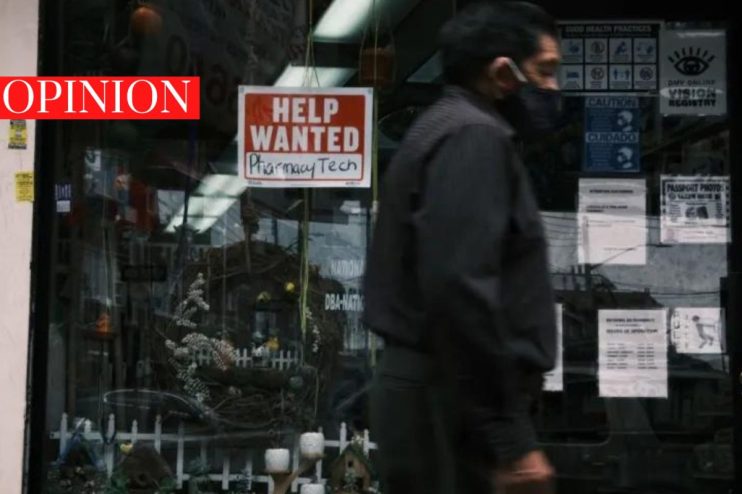Our angst over migration means we’re still ignoring skilled staff for UK firms

The UK has offered jobs to refugees from Ukraine and Hong Kong. But many skilled refugees from Afghanistan or Syria are still treated differently, and struggle to find work, writes Elena Siniscalco
Lee arrived in the UK in January this year from Hong Kong, thanks to a British National Overseas visa. Despite having decades of experience in brand and event management, he hasn’t found a job. Even as his friends in accounting or programming were snapped up and he was ignored, he’s still hopeful. “I’m looking for something a bit downgraded – to prove what I can do and have some hands-on experience”, he says. He’s currently interviewing for jobs.
Yana arrived a year ago from Ukraine. She’s 33 and worked as a recruiter with international clients. She’s found a job in London, although back home she was head of department. She doesn’t mind the demotion, because it gives her exposure in the UK market. She considers herself fortunate: “I heard stories from people who were looking for 8 months, or a year, without having any interviews.”
Neither had it easy, but overall they have been lucky – and they know it. When they arrived among the hundreds of thousands of people who fled persecution in Hong Kong or the war in Ukraine, they were welcomed. Last year, more than 45 British businesses including M&S, Asos and Lush said they were willing to offer jobs to Ukrainians.
But there is another side of the coin. In the story of refugees and employment, there is a deep problem of preferential treatment based on nationality. Finding a job is much harder for refugees from Afghanistan, Syria and other African or Middle Eastern countries.
Although one in five British employers has hired a Ukrainian migrant, the overall employment rate for refugees is 5 per cent after their first year in the UK. Only 3 per cent of London businesses say they employ a refugee, according to a London Chambers of Commerce report.
Employment is the single biggest factor in successful refugee integration, according to the Oxford University migration observatory. Without a job, refugees can’t afford a home, and without a home they can’t find a community and settle down. Those who are lucky enough to find a job earn, on average, about half the amount that UK nationals do on a weekly basis, according to a Compas report.
Yet as Lee and Yana both acknowledged, the UK has been generous in welcoming people from their countries and giving them a job. Some workplaces’ attitudes are shifting, with 55 per cent of London businesses surveyed by the Chambers of Commerce saying they would employ a refugee if they had more information about the laws and how to support them.
However experts in the refugee employment field say the picture drastically changes when it comes to refugees from countries like Syria. Hannah Brooke, the head of partnership at Renaisi, the organisation that helped both Lee and Yana find work, says she sees it every day in her job. “Talented, highly qualified refugees from countries such as Afghanistan, Syria or Eritrea are often locked out of our workforces because of conscious and unconscious bias”, she says. This happens despite high levels of qualifications and skills. According to a report by Deloitte, 38 per cent of Syrian refugees who live in the UK have a university degree. Many of them are engineers or software developers.
We’re affected by all sorts of biases. Surveys have shown how Britons feel less morally obliged to offer asylum to Afghan, Syrian and Somali refugees than to Ukrainians. Six in ten people, according to a YouGov survey, believe the UK has a moral obligation to offer asylum to Ukrainian refugees. Instead 44 per cent believe the same is true for people from Afghanistan and 39 per cent for Syrians.
This attitude trickles all the way down to the workplace. But none of the problems plaguing the asylum system in the UK will be solved unless everyone, regardless of where they come from, is provided with the opportunity to thrive – and most simply, to make a living here. The economic case for this has been shouted from the rooftops time and time again.
Big firms like Amazon, Hilton and Marriott committed in June to hire 13,680 refugees over the next three years in Europe. Initiatives like this make a difference. But until they make a difference for everyone, they won’t be enough.